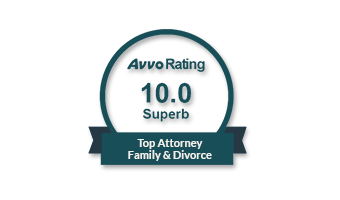Slovensky Law provides comprehensive family law services, including divorce, child custody, child support, spousal support, and adoptions.
Slovensky Law
Frequently Asked Questions
First Steps
Where is Slovensky Law located in Roanoke, VA?
Slovensky Law is located at 4320 Brambleton Avenue, Roanoke, Virginia 24018
What are Slovensky Law’s office hours in Roanoke County?
Our office hours are Monday through Friday, 9:00 AM to 5:00 PM. We are closed on weekends and public holidays.
How can I schedule a consultation with Slovensky Law?
You can schedule a consultation by calling us at 540-492-5297 or by visiting our website and filling out the contact form.
What should I bring to my initial consultation with Slovensky Law?
Please bring any relevant documents related to your case, including financial records, legal documents, and any correspondence with the other party.
How much does a consultation with Slovensky Law cost?
The cost of a consultation can vary from $250-$500, with free consultations for adoptions. Please contact our office at 540-492-5297 for specific information regarding consultation fees.
What are Slovensky Law’s fees for family law services?
Our fees vary depending on the complexity and specifics of each case. We offer transparent billing and will discuss all fees during your initial consultation.
Does Slovensky Law offer payment plans for family law services in Roanoke?
Our fees vary depending on the complexity and specifics of each case. We offer transparent billing and will discuss all fees during your initial consultation.
What is Slovensky Law’s experience in handling family law cases?
Slovensky Law has extensive experience in handling family law cases, with a team of dedicated attorneys who have successfully managed numerous cases in Roanoke, VA. We handle exclusively family law.
How long has Slovensky Law been serving clients in Roanoke, VA?
Slovensky Law has been proudly serving clients in Roanoke, VA for over 6 years, handling more divorce cases in this area than other law firms.
What sets Slovensky Law apart from other family law firms in Roanoke County?
Our personalized approach, extensive experience, and dedication to client satisfaction set us apart from other family law firms in Roanoke County.
How does Slovensky Law handle client confidentiality?
We take client confidentiality very seriously and adhere to strict legal and ethical standards to ensure all client information is protected from the first moment you contact us.
What is the typical timeline for a family law case with Slovensky Law?
The timeline for a family law case varies depending on the complexity and specifics of the case- from a few weeks to years. We strive to resolve cases efficiently while ensuring the best possible outcomes for our clients.
How often will I receive updates on my case from Slovensky Law?
We keep our clients regularly updated on the progress of their case through phone calls, emails, and in-person meetings as needed. Some clients receive weekly case updates.
Can Slovensky Law represent me if I live outside of Roanoke County?
Yes, we can represent clients from surrounding areas, including Cave Spring, Lynchburg, Blacksburg, Christiansburg, and Smith Mountain Lake.
What types of family law cases does Slovensky Law handle?
Slovensky Law handles a wide range of family law cases, including divorce, child custody, child support, spousal support, adoptions, and guardianships.
Does Slovensky Law offer virtual consultations for clients in Roanoke, VA?
Yes, we offer virtual consultations for clients who prefer or require remote meetings. Please contact us to schedule a virtual appointment.
How does Slovensky Law approach mediation and negotiation?
We believe in resolving disputes amicably whenever possible and work with skilled mediators and negotiators to facilitate fair and effective resolutions.
What should I do if I need immediate legal assistance from Slovensky Law?
If you need immediate legal assistance, please call our office at 540-492-5297. For emergencies outside office hours, please leave a detailed message, and we will get back to you as soon as possible.
How can I contact Slovensky Law after business hours in Roanoke County?
You can leave a voicemail or send an email through our website’s contact form, and we will respond promptly during the next business day.
What is the success rate of Slovensky Law in family law cases?
While success rates can vary, Slovensky Law has a strong track record of achieving favorable outcomes for our clients in family law cases.
Does Slovensky Law provide legal resources or information on family law?
Yes, we provide various legal resources and information on family law through our blog and FAQs on our website.
How does Slovensky Law ensure fair billing practices?
We provide clear and detailed billing statements and discuss all fees upfront to ensure transparency and fairness in our billing practices. Clients receive bills approximately every two weeks, so they always know where they stand with us and a dedicated billing specialist will answer any billing questions, often within hours of any inquiry.
What should I expect during the initial stages of my case with Slovensky Law?
During the initial stages, we will gather information, review your case details, and develop a strategic plan tailored to your specific needs and goals.
How does Slovensky Law support clients emotionally during family law proceedings?
We understand the emotional challenges of family law cases and provide compassionate support, ensuring our clients feel heard, understood, and supported throughout the process.

Divorce
What are the grounds for divorce in Virginia?
In Virginia there are 5 different legally recognized reasons for divorce. They are separation; which can be for six months or year, depending on the circumstances; conviction of a felony with imprisonment for one year; adultery; desertion/abandonment; and cruelty.
Do You handle both No Fault and Fault-Based Divorce?
We happily handle both No-Fault and Fault-Based divorces.
How long do I have to live in Virginia before I can file a divorce action?
At least one party to the divorce needs to have lived in Virginia for six months prior to a divorce being initiated.
Why is the date of separation important?
The date of separation becomes important because it can become a benchmark date in the calculation of the value of marital debts and property. Additionally, for the purposes of calculating spousal support duration, the court may not consider post-separation time as part of the marriage.
How is the date of separation determined?
The date of separation is determined at the last time that one of the parties intended the marriage to be over without getting back together with the other party. If it is because one party went to jail, there needs to be clear evidence that at least one of the parties intended to separate prior to one party going to jail (though people facing this issue may be eligible for a felony divorce).
Does Virginia grant divorces based on marital fault?
Virginia courts absolutely can. But they generally do not. It is very rare for a Virginia court to grant a divorce based on any fault grounds, as the standards for evidence can be exceedingly difficult. In Virginia, you nearly have to have both you and a witness catch your spouse in flagrante delicto to prove adultery. Even then, the judge can exercise discretion not to award a divorce based on adultery. Even if it is unlikely, though not impossible, for your divorce to end up with a judge declaring your spouse as “in the wrong” at the end of the case, there are strategic reasons you may wish to pursue a fault-ground divorce, and fault factors can play into division of marital property as well as spousal support obligations.
Can I get maintenance or will I have to provide maintenance to my spouse?
If you have recently separated from your spouse and you make significantly less money than them, it is likely that you can get spousal support from them at least a little while, and perhaps much longer. The converse is also true- a spouse making a lot of money will likely have to pay some form of spousal support for at least a little while if the other party has good legal advice. Beyond that, there are 14 factors that go into deciding permanent spousal support, and you will need to sit down with an attorney to assess your spousal support case.
What if my spouse does not want the divorce?
Tough. Kind of. If your spouse does not want a divorce, they can challenge the divorce and raise legal obstacles. However, if you have been truly separated for a year, you are legally entitled to a divorce in Virginia, regardless of what your spouse wants.
How long do I have to live in Virginia to obtain a divorce?
At least one of the parties needs to have been a legitimate residence of Virginia for at least six months in order to file for a divorce in Virginia.
How do I prove fault for divorce?
Proving a fault divorce can be very difficult. In cases of desertion or cruelty, police records and/or text messages, etc. can be useful. To prove adultery, you will need evidence that your spouse actually had sex with another person. Not just that they spent the night at the house. This is further difficult to prove because adultery is a crime in Virginia, and therefore there are additional procedural protections available to someone accused of adultery (like pleading the fifth, for example). Of course, if your spouse gets pregnant by another man and it turns out the child isn’t yours, then you have a pretty provable case.
Can a couple become legally married by living together as man and wife under Virginia’s laws (common law marriage)?
Virginia does not recognize common law marriage, but there’s a twist- if you had a legally recognized common law marriage in another state, your common law marriage may be recognized in Virginia.
What is divorce from bed and board?
Same thing as a divorce a mensa et thoro. A divorce from bed and board is an incomplete divorce. It releases parties from the normal societal expectations of living together as a married couple (which isn’t very useful anymore because social expectations have changed a lot). While it sanctions the parties living separately, it does not free the other parties to go and marry other parties. In very limited circumstances, someone may pursue this incomplete divorce for religious reasons or other financial planning reasons.

Contested Divorce
What is a contested divorce in Virginia?
A contested divorce in Virginia occurs when spouses cannot agree on key issues such as asset division, child custody, or spousal support. This type of divorce requires court intervention to resolve disputes. At Slovensky Law in Roanoke, VA, our experienced attorneys are skilled in navigating contested divorces, ensuring your interests are well-represented.
How do I file for a contested divorce in Roanoke County?
To file for a contested divorce in Roanoke County, you must submit a complaint to the circuit court, detailing the grounds for divorce and the contested issues. Slovensky Law can assist you in preparing and filing the necessary documents, guiding you through each step of the process to ensure your case is handled efficiently and effectively.
What are the grounds for a contested divorce in Virginia?
In Virginia, grounds for a contested divorce include adultery, cruelty, abandonment, desertion, and felony conviction. Understanding and proving these grounds can be complex. Slovensky Law’s expertise in Roanoke County divorce cases ensures that we build a strong case on your behalf, leveraging our in-depth knowledge of Virginia family law.
How long does a contested divorce take in Roanoke, VA?
The duration of a contested divorce in Roanoke, VA can vary significantly, typically ranging from several months to over a year, depending on the complexity of the issues and court schedules. Slovensky Law is committed to resolving your case as swiftly as possible while ensuring all legal matters are thoroughly addressed.
What is the difference between a contested and uncontested divorce?
A contested divorce involves disputes over key issues that require court intervention, while an uncontested divorce means both parties agree on all terms. Slovensky Law provides both contested and uncontested divorces in Roanoke, VA, providing tailored legal strategies to meet your specific needs.
Can Slovensky Law represent me in a contested divorce in Roanoke?
Yes, Slovensky Law has extensive experience representing clients in contested divorces in Roanoke, VA. Our team of dedicated family law attorneys is committed to protecting your rights and achieving the best possible outcomes in complex divorce cases.
What are the costs associated with a contested divorce in Virginia?
The costs of a contested divorce in Virginia can vary based on the complexity of the case and the amount of litigation involved. At Slovensky Law, we provide transparent billing practices and offer a detailed estimate during your initial consultation to help you understand potential expenses.
How can I prepare for a contested divorce in Roanoke, VA?
Preparing for a contested divorce involves gathering financial documents, evidence related to the grounds for divorce, and any other relevant information. Slovensky Law assists clients in Roanoke, VA by providing comprehensive guidance on documentation and legal strategy, ensuring you are well-prepared for your case
What should I expect during the contested divorce process in Roanoke County?
During a contested divorce in Roanoke County, you can expect a series of legal steps including filing, discovery, negotiations, and potentially a trial. Slovensky Law’s attorneys will guide you through each stage, offering tailored advice and representation to achieve a favorable outcome.
How is property divided in a contested divorce in Virginia?
In Virginia, property division follows the principle of equitable distribution, meaning assets are divided fairly but not necessarily equally. Slovensky Law in Roanoke, VA, has extensive experience in advocating for fair property division, ensuring your financial interests are protected throughout the divorce process.
What happens if my spouse does not respond to the divorce petition?
If your spouse does not respond to the divorce petition within the specified time, the court may grant a default judgment in your favor. This means the court can proceed with the divorce and make decisions on property division, support, and custody without your spouse’s input. At Slovensky Law in Roanoke, VA, we have successfully handled numerous default cases, ensuring our clients’ interests are protected even in the absence of the other party’s response.
Can I get temporary support during a contested divorce in Roanoke, VA?
Yes, you can request temporary support during a contested divorce to cover expenses such as living costs, child support, and legal fees. Slovensky Law can help you file for temporary orders, ensuring you receive the necessary support throughout the divorce process. Our Roanoke, VA attorneys have extensive experience in securing favorable temporary support arrangements for our clients.
How does the court determine child custody in a contested divorce?
In a contested divorce, the court determines child custody based on the best interests of the child, considering factors such as each parent’s ability to care for the child, the child’s relationship with each parent, and any history of abuse or neglect. Slovensky Law in Roanoke, VA, has a strong track record in advocating for our clients’ parental rights, ensuring that custody arrangements are fair and in the child’s best interests.
What are my rights regarding spousal support in a contested divorce?
Your rights to spousal support depend on factors such as the length of the marriage, your financial needs, and your spouse’s ability to pay. The court considers these factors when determining spousal support. Slovensky Law’s attorneys in Roanoke, VA, are adept at negotiating and litigating spousal support issues, ensuring our clients receive fair and adequate support.
How can Slovensky Law help me with my contested divorce case?
Slovensky Law can provide comprehensive legal representation for your contested divorce case, including filing necessary documents, representing you in court, negotiating settlements, and protecting your rights throughout the process. Our experienced attorneys in Roanoke, VA, are committed to achieving the best possible outcomes for our clients, leveraging our extensive knowledge and successful track record in family law.
What should I do if my spouse contests the divorce?
If your spouse contests the divorce, it’s important to gather all relevant evidence and seek legal counsel immediately. Slovensky Law in Roanoke, VA, can help you build a strong case, navigate the legal complexities, and represent your interests effectively. We have successfully handled numerous contested divorces, ensuring our clients’ rights and interests are protected throughout the process.
Can mediation be used in a contested divorce in Roanoke, VA?
Yes, mediation can be a valuable tool in resolving disputes in a contested divorce, potentially reducing the time and cost of litigation. Slovensky Law offers mediation services to help couples reach mutually agreeable solutions on issues such as property division, custody, and support. Our Roanoke, VA attorneys are skilled mediators who strive to facilitate amicable resolutions while protecting our clients’ interests.
How does infidelity affect a contested divorce in Roanoke County?
Infidelity can impact the outcome of a contested divorce, particularly in matters of spousal support and property division. Courts may consider adultery when determining alimony and asset allocation. Slovensky Law in Roanoke, VA, has extensive experience handling cases involving infidelity, ensuring our clients’ rights and interests are effectively represented.
What documents are needed for a contested divorce in Virginia?
Essential documents for a contested divorce include financial statements, tax returns, property deeds, bank statements, and any prenuptial agreements. Slovensky Law in Roanoke, VA, can guide you through the documentation process, ensuring all necessary paperwork is properly prepared and submitted to strengthen your case.
What is the role of discovery in a contested divorce?
Discovery is a legal process where both parties exchange information and evidence relevant to the divorce. This includes financial records, communications, and other pertinent documents. Slovensky Law in Roanoke, VA, utilizes discovery to uncover critical information, ensuring a thorough and fair examination of all issues, which is crucial for achieving favorable outcomes in contested divorces.
How can I protect my assets during a contested divorce in Roanoke, VA?
Protecting your assets during a contested divorce involves thorough documentation and legal strategies. At Slovensky Law in Roanoke, VA, we help clients safeguard their financial interests by identifying and valuing assets, preparing prenuptial or postnuptial agreements, and advocating for fair property division. Our experienced attorneys ensure your assets are accurately represented and protected throughout the divorce process.
What are the most common issues in a contested divorce?
Common issues in a contested divorce include property division, child custody, child support, spousal support, and debt allocation. These disputes require careful negotiation and legal expertise. Slovensky Law in Roanoke, VA, has a proven track record of successfully resolving these complex issues, ensuring our clients’ rights and interests are prioritized.
How can Slovensky Law assist with child custody disputes in a contested divorce?
Slovensky Law provides comprehensive support in child custody disputes by gathering evidence, representing your interests in court, and negotiating custody agreements that serve the best interests of the child. Our Roanoke, VA attorneys have extensive experience in family law, ensuring that your parental rights are upheld and that custody arrangements are fair and just.
How is alimony determined in a contested divorce in Virginia?
Alimony, or spousal support, is determined based on factors such as the duration of the marriage, financial needs, earning capacities, and contributions to the household. Slovensky Law in Roanoke, VA, advocates for fair alimony arrangements, leveraging our expertise to ensure that support orders reflect our clients’ financial realities and needs.
What if my spouse and I cannot agree on the terms of our divorce?
If you and your spouse cannot agree on the terms of your divorce, the court will decide on contested issues. Slovensky Law in Roanoke, VA, can represent you in court, presenting a strong case to protect your interests. Our skilled attorneys work diligently to achieve favorable outcomes, even in highly contentious divorces.
Can I modify child support during a contested divorce in Roanoke, VA?
Yes, child support can be modified during a contested divorce if there is a significant change in circumstances, such as changes in income or the needs of the child. Slovensky Law can help you file for a modification, ensuring that support amounts are fair and appropriate. Our Roanoke, VA attorneys have a strong track record of securing favorable child support modifications.
How does the court decide on the division of marital debts in a contested divorce?
The court divides marital debts based on factors such as the nature of the debt, the purpose for which it was incurred, and each spouse’s ability to repay. Slovensky Law in Roanoke, VA, ensures that debt division is fair and equitable, advocating for our clients’ financial interests in court.
What are the residency requirements for filing a contested divorce in Virginia?
To file for a contested divorce in Virginia, at least one spouse must have been a resident of the state for six months. Slovensky Law in Roanoke, VA, can help you meet these requirements and guide you through the filing process, ensuring your case is properly initiated.
What is the impact of domestic violence on a contested divorce case?
Domestic violence significantly impacts contested divorce cases, particularly in matters of child custody and spousal support. Courts prioritize the safety and well-being of victims and children. Slovensky Law in Roanoke, VA, provides strong advocacy for clients facing domestic violence, ensuring protective measures and fair legal outcomes.
How can I find out if my spouse is hiding assets during our contested divorce?
Discovering hidden assets involves thorough investigation and legal discovery techniques. Slovensky Law in Roanoke, VA, employs forensic accountants and other experts to uncover hidden assets, ensuring all marital property is accounted for and fairly divided. Our commitment to detailed and diligent representation protects your financial interests.
What should I do if my spouse is not complying with court orders during our contested divorce?
If your spouse is not complying with court orders, you can file a motion for contempt with the court. Slovensky Law in Roanoke, VA, can assist you in taking legal action to enforce compliance and protect your rights. Our experienced attorneys ensure that court orders are upheld and that you receive the relief you are entitled to.
Can I relocate with my child during a contested divorce in Roanoke, VA?
Relocating with your child during a contested divorce requires court approval. The court considers the best interests of the child and the impact on visitation rights. Slovensky Law in Roanoke, VA, can help you navigate the legal requirements for relocation, presenting a strong case to support your move while prioritizing your child’s welfare.
What are the legal fees involved in a contested divorce with Slovensky Law?
The legal fees for a contested divorce vary based on the complexity and duration of the case. At Slovensky Law, we offer transparent billing practices and provide a detailed estimate during your initial consultation. Our goal is to deliver high-quality legal services in Roanoke, VA, while ensuring you understand the costs involved.
How can I ensure a fair outcome in my contested divorce case?
Ensuring a fair outcome involves thorough preparation, gathering evidence, and effective legal representation. Slovensky Law in Roanoke, VA, leverages our extensive experience in contested divorce cases to advocate for your rights, presenting compelling arguments and evidence to achieve the best possible results for you.
What are the steps involved in a contested divorce in Roanoke County?
The steps include filing a divorce petition, serving the petition to your spouse, discovery, negotiation, trial, and final judgment. Slovensky Law guides you through each step, providing legal support and representation to navigate the complexities of a contested divorce in Roanoke County effectively.
Can I appeal the court's decision in a contested divorce?
Yes, you can appeal the court’s decision if you believe there was a legal error. The appeals process involves strict deadlines and complex procedures. Slovensky Law in Roanoke, VA, has the expertise to evaluate your case and pursue an appeal if warranted, striving to overturn or modify unfavorable decisions.
How does adultery impact spousal support in a contested divorce in Virginia?
Adultery can significantly impact spousal support, potentially barring the adulterous spouse from receiving alimony. However, exceptions exist. Slovensky Law in Roanoke, VA, can help you navigate the complexities of adultery claims, ensuring that spousal support determinations are fair and just.
What should I do if my spouse files for a contested divorce first?
If your spouse files first, you should respond promptly to protect your rights. Consult with Slovensky Law in Roanoke, VA, to develop a strategic response and counterclaims, if necessary. Our experienced attorneys will guide you through the process, ensuring your interests are effectively represented.
How can Slovensky Law help with high-asset contested divorce cases?
Slovensky Law specializes in high-asset contested divorces, offering expertise in asset valuation, division, and protection. Our Roanoke, VA attorneys work with financial experts to ensure all assets are identified and fairly divided, safeguarding your financial future and securing favorable outcomes.
What are the common mistakes to avoid during a contested divorce?
Common mistakes include hiding assets, ignoring court orders, failing to document financials, and not seeking legal advice. Slovensky Law in Roanoke, VA, helps clients avoid these pitfalls by providing comprehensive legal guidance and representation, ensuring a smooth and successful divorce process.
How long do I have to respond to a contested divorce petition in Virginia?
In Virginia, you typically have 21 days to respond to a contested divorce petition after being served. It’s crucial to act promptly to protect your rights. Slovensky Law in Roanoke, VA, can help you draft a comprehensive response, ensuring that your interests are well-represented and that you meet all legal deadlines.
What factors influence the court's decision in a contested divorce?
The court considers various factors such as the duration of the marriage, each spouse’s financial situation, contributions to the marriage, and any fault grounds like adultery or abuse. Slovensky Law’s experienced attorneys in Roanoke, VA, understand these factors and build strong cases to influence court decisions favorably for our clients.
Can a contested divorce be converted to an uncontested divorce?
Yes, a contested divorce can be converted to an uncontested divorce if both parties reach an agreement on all key issues. Slovensky Law in Roanoke, VA, can facilitate negotiations and mediation to help resolve disputes amicably, potentially saving time and reducing legal expenses.
How can I gather evidence for my contested divorce case?
Gathering evidence involves collecting financial records, communication logs, witness statements, and other relevant documentation. Slovensky Law in Roanoke, VA, provides detailed guidance on evidence collection, ensuring that all necessary information is obtained to support your case effectively.
What is the impact of mental health issues on a contested divorce?
Mental health issues can significantly impact decisions related to child custody and spousal support. Courts assess how these issues affect parenting abilities and financial stability. Slovensky Law in Roanoke, VA, has extensive experience handling cases involving mental health concerns, ensuring that our clients’ rights and interests are protected.
What are the chances of winning a contested divorce case in Roanoke, VA?
The chances of a favorable outcome in a contested divorce depend on the specifics of your case and the quality of your legal representation. Slovensky Law in Roanoke, VA, has a strong track record of success, leveraging our expertise to achieve the best possible results for our clients in contested divorce cases.
Can I request a change of judge in my contested divorce case?
Requesting a change of judge is possible but requires demonstrating bias or a conflict of interest. Slovensky Law in Roanoke, VA, can evaluate your situation and advise on the best course of action, ensuring that your case is heard by an impartial judge.
How does the court handle false allegations in a contested divorce?
Courts take false allegations seriously and require evidence to substantiate claims. False allegations can negatively impact credibility and outcomes. Slovensky Law in Roanoke, VA, vigorously defends against unfounded accusations, ensuring that the truth prevails and your rights are protected.
Why should I choose Slovensky Law for my contested divorce case in Roanoke, VA?
Choosing Slovensky Law means partnering with a firm that has a proven track record, extensive experience, and a commitment to client success. Our attorneys in Roanoke, VA, provide personalized attention, strategic legal representation, and a dedication to achieving the best possible outcomes for our clients in contested divorce cases.
What happens if my spouse does not show up for the contested divorce hearing?
If your spouse fails to appear for the hearing, the court may proceed in their absence and potentially rule in your favor. Slovensky Law in Roanoke, VA, ensures that you are fully prepared for court proceedings, maximizing the chances of a favorable outcome even if your spouse is absent.

Uncontested Divorce
What is an uncontested divorce?
An uncontested divorce is a type of divorce where both spouses agree on all major issues, including property division, child custody, and support arrangements. This agreement eliminates the need for a trial, making the process faster and less expensive. At Slovensky Law in Roanoke, VA, we specialize in guiding clients through the uncontested divorce process efficiently and amicably.
How does an uncontested divorce differ from a contested divorce?
In an uncontested divorce, both parties agree on all terms of the divorce without needing a court to decide for them. This contrasts with a contested divorce, where spouses cannot agree on one or more key issues, requiring judicial intervention. An uncontested divorce in Roanoke, VA, handled by Slovensky Law, tends to be less stressful, quicker, and more cost-effective.
What are the benefits of an uncontested divorce in Roanoke, VA?
The benefits of an uncontested divorce include a faster resolution, lower legal fees, and reduced emotional strain. By agreeing on terms, spouses can avoid lengthy court battles and work towards a mutually satisfactory agreement. Slovensky Law offers assistance to help you navigate this process smoothly in Roanoke, VA.
What are the eligibility requirements for an uncontested divorce in Virginia?
To be eligible for an uncontested divorce in Virginia, both parties must agree on all divorce-related issues, meet the residency requirements, and live separately for a specific period (usually six months to one year, depending on whether there are children involved). Slovensky Law can provide detailed guidance to ensure you meet all requirements for an uncontested divorce in Roanoke County.
How long does an uncontested divorce take in Roanoke County?
The duration of an uncontested divorce in Roanoke County can vary, but it generally takes between 30 to 90 days after filing the necessary documents and meeting all legal requirements. At Slovensky Law, we strive to expedite the process for our clients to ensure a timely resolution.
What is the cost of an uncontested divorce at Slovensky Law?
The cost of an uncontested divorce at Slovensky Law depends on various factors, including the complexity of the case and the specific services required. For an estimated figure, please contact us directly at (540) 492-5297.
Can we use the same attorney for our uncontested divorce?
While it is possible for one attorney to handle the paperwork for both parties in an uncontested divorce, it is important to note that the attorney can only represent one spouse officially. The other spouse should seek independent legal advice to ensure their interests are protected. At Slovensky Law, we can help facilitate this process in Roanoke, VA.
Do we have to go to court for an uncontested divorce in Virginia?
In many cases, an uncontested divorce in Virginia can be finalized without either party needing to appear in court. The necessary documents can be filed, and the divorce decree can be granted based on the agreement. Slovensky Law in Roanoke, VA, can assist you in managing the paperwork to avoid court appearances.
What documents are needed for an uncontested divorce?
The primary documents needed for an uncontested divorce include a divorce complaint, a property settlement agreement, financial affidavits, and, if applicable, a parenting plan. At Slovensky Law, we ensure all necessary paperwork is correctly prepared and filed for your uncontested divorce in Roanoke County.
Can we file for an uncontested divorce without a lawyer in Roanoke, VA?
While it is possible to file for an uncontested divorce without a lawyer, having legal assistance can ensure that all documents are correctly prepared and that your rights are protected throughout the process. Slovensky Law offers affordable legal services to guide you through an uncontested divorce in Roanoke, VA, making the process as smooth as possible.
How do I start the uncontested divorce process with Slovensky Law?
To start the uncontested divorce process with Slovensky Law in Roanoke, VA, you can schedule an initial consultation by calling us at (540) 492-5297 or filling out the contact form on our website, https://slovenskylaw.com/. During the consultation, we will discuss your situation, outline the necessary steps, and help you gather the required documents to move forward smoothly
What issues need to be agreed upon in an uncontested divorce?
In an uncontested divorce, both spouses must agree on key issues including property division, child custody and visitation, child support, alimony, and debt allocation. Slovensky Law can help you draft a comprehensive agreement that addresses all these areas, ensuring a fair and amicable resolution for both parties in Roanoke, VA.
How do we handle property division in an uncontested divorce?
Property division in an uncontested divorce involves both parties agreeing on how to split marital assets and debts. This includes real estate, bank accounts, retirement accounts, vehicles, and personal property. At Slovensky Law, we can guide you through the negotiation process to reach a fair agreement that satisfies both parties and adheres to Virginia’s equitable distribution laws
Is child custody included in an uncontested divorce?
Yes, child custody is included in an uncontested divorce. Both parents must agree on a custody arrangement that serves the best interests of the child. This includes decisions about physical custody (where the child will live) and legal custody (decision-making authority). Slovensky Law can assist you in creating a comprehensive parenting plan that ensures the well-being of your children in Roanoke, VA.
How do we determine child support in an uncontested divorce?
Child support in an uncontested divorce is determined based on Virginia’s child support guidelines, which consider factors such as each parent’s income, the child’s needs, and the custody arrangement. Slovensky Law can help you calculate the appropriate amount of child support and ensure that it is included in your divorce agreement.
What if we agree on everything except one issue? Can we still file for an uncontested divorce?
If you agree on all but one issue, it may still be possible to file for an uncontested divorce. You can use mediation to resolve the remaining issue. Once an agreement is reached on all matters, Slovensky Law can help finalize the uncontested divorce in Roanoke County, ensuring a smooth and efficient process.
Do we need to be separated for a specific time before filing for an uncontested divorce in Virginia?
Yes, in Virginia, you must be separated for a specific period before filing for an uncontested divorce. If you have minor children, you must be separated for at least one year. If you have no minor children and have a written separation agreement, the separation period is six months. Slovensky Law can provide guidance on meeting these requirements.
How does mediation fit into an uncontested divorce process?
Mediation can be a valuable tool in the uncontested divorce process, helping couples resolve disputes amicably with the assistance of a neutral third party. It can be used to address any issues that are not initially agreed upon. Slovensky Law guides clients through mediation to help you reach a fair agreement and avoid the need for a contested divorce.
Can we modify our divorce agreement after it's finalized?
Yes, it is possible to modify a divorce agreement after it has been finalized, but certain conditions must be met. Changes to child custody, child support, or alimony typically require a significant change in circumstances. Slovensky Law can assist you in petitioning the court for modifications if your situation has changed since the divorce was finalized.
What happens if one spouse changes their mind about the divorce agreement?
If one spouse changes their mind about the divorce agreement before it is finalized, the divorce may become contested, and the issues in dispute will need to be resolved through negotiation or court intervention. If the agreement has already been finalized, modifications can only be made under specific circumstances. Slovensky Law can provide guidance and support throughout this process in Roanoke, VA.
Can I get an uncontested divorce if my spouse lives in another state?
Yes, you can get an uncontested divorce if your spouse lives in another state. As long as you meet Virginia’s residency requirements (one party has lived in Virginia for six months) and both parties agree on all terms of the divorce, you can proceed with the uncontested divorce process. Slovensky Law can help you navigate the additional steps required to serve divorce papers across state lines and ensure compliance with both Virginia and the other state’s laws.
What are the residency requirements for filing an uncontested divorce in Virginia?
To file for an uncontested divorce in Virginia, at least one spouse must have been a resident of the state for a minimum of six months before filing. Additionally, you must be living separately for the required period (six months if you have a separation agreement and no minor children, or one year if you have minor children). Slovensky Law can help you determine if you meet these requirements and guide you through the filing process in Roanoke, VA.
How does the divorce affect my taxes?
Divorce can impact your taxes in several ways, including changes to your filing status, eligibility for tax credits, and how you handle deductions and exemptions. Property transfers and alimony payments may also have tax implications. Slovensky Law can provide guidance on how divorce will affect your taxes and help you plan accordingly. It is also advisable to consult a tax professional for detailed tax advice tailored to your situation.
Can we draft our own divorce agreement and have Slovensky Law review it?
Yes, you can draft your own divorce agreement and have Slovensky Law review it. However, it is often less expensive to have us draft it ourselves. Our attorneys will ensure that the agreement is fair, legally sound, and complies with Virginia law. We will identify any potential issues and provide recommendations to protect your interests. This review process helps prevent future disputes and ensures a smooth uncontested divorce process in Roanoke, VA.
What if we have retirement accounts to divide in an uncontested divorce?
Dividing retirement accounts in an uncontested divorce requires careful consideration and often involves a Qualified Domestic Relations Order (QDRO). Slovensky Law can help you navigate the complexities of dividing retirement assets, ensuring compliance with legal requirements and minimizing tax consequences. We will work with you to draft a fair division of retirement accounts that reflects both parties’ contributions and future needs in Roanoke, VA.
How does Slovensky Law ensure a fair divorce agreement?
Slovensky Law ensures a fair divorce agreement by providing personalized legal advice tailored to your unique situation. Our experienced attorneys help you understand your rights and obligations, facilitating open communication between both parties. We prioritize equitable distribution of assets, fair child custody arrangements, and appropriate support agreements, ensuring that the final settlement is balanced and just for both parties in Roanoke, VA.
What should I bring to my initial consultation for an uncontested divorce?
For your initial consultation at Slovensky Law, please bring identification, financial documents (such as bank statements, tax returns, and pay stubs), information about assets and debts, a list of agreements already reached with your spouse, and any relevant legal documents (like prenuptial agreements or previous court orders). Having these documents will help our attorneys provide accurate advice and efficiently start the uncontested divorce process in Roanoke, VA.
Can we include alimony in our uncontested divorce agreement?
Yes, alimony can be included in an uncontested divorce agreement. Both parties must agree on the terms of alimony, including the amount and duration of payments. Slovensky Law can help you negotiate and draft a fair alimony arrangement that meets the needs of both spouses, ensuring it is legally binding and enforceable in Roanoke, VA.
How do we handle debts in an uncontested divorce?
In an uncontested divorce, both parties must agree on how to divide marital debts. This includes credit card debts, loans, and mortgages. Slovensky Law can assist you in negotiating a fair division of debts, ensuring that the agreement reflects your financial circumstances and complies with Virginia law. We provide guidance to help you understand the implications of debt division and protect your financial future in Roanoke, VA.
What is the process for filing an uncontested divorce in Roanoke County?
- Consultation: Schedule a consultation with Slovensky Law to discuss your situation and gather necessary documents.
- Draft Agreement: Work with our attorneys to draft a comprehensive divorce agreement covering all relevant issues.
- File Documents: File the divorce complaint and agreement with the Roanoke County Circuit Court.
- Serve Papers: Serve the divorce papers to your spouse.
- Court Review: The court reviews your agreement and, if everything is in order, issues a final divorce decree.
- Slovensky Law will guide you through each step to ensure a smooth and efficient process.

Family Law
What is the definition of physical custody?
Physical custody defines where a child lives most of the time. It does not mean that parent has all control over the child whatsoever. Legal custody is the ability to be involved in decision-making for the children.
Does the mother always win sole physical and legal custody?
Virginia courts try to assess what is in the best interest of the child when determining child custody. Unless the parent is actually harmful to the child (a really high standard), the parent will often get at least some form of visitation with the child and often legal custody.
How does a court decide which parent will get custody of a child?
The Court will apply 10 different factors when determining who will get custody of a child. These factors are used to assist the court in determining what is best for the child.
What are the rights of grandparents to visit grandchildren?
Grandparents do not automatically have rights to visitation in Virginia, however they are considered “persons with a legitimate interest” with a child, meaning the court will at least let them put on a legal case to get visitation with grandchildren. Where both parents object to visitation, the grandparent will have to show actual harm to the child if visitation is not award to the grandparent.
How may a grandparent get custody of her grandchildren?
A grandparent can get custody of grandchildren through DSS placement in cases of neglect and abuse, through parental placement in some circumstances, and by filing through the Court in other cases.
What about spousal or child abuse protective orders?
There are three different kind of protective orders available- emergency, temporary, and permanent (which only last two years). Protective orders can be a powerful weapon against a domestic abuser, and an innocent person accused of abuse should seek legal counsel immediately to defend a protective order.
What is the role of mediation in a custody/visitation disputes?
Mediation is not currently often used in custody/visitation disputes where attorneys are involved in this area in Virginia. It may be used in a divorce situation where custody and visitation is also an issue.
What is the role of collaborative law in a custody/visitation?
Collaborative law is a strategy to minimize both strife and legal fees in divorces where both parties are reasonable, there are significant assets involved, and the parties want an amicable resolution. We always discuss a variety of applicable solutions for parties, and we will recommend a collaborative solution where appropriate for a case.
Can a parent refuse to allow visitation if child support is not paid?
No. Visitation and child support are considered separate issues, and the Court will not allow you to withhold visitation if support has not been paid. Likewise, you can face a contempt of court charge if you withhold support because you have not seen your child. Legal remedies like “show cause” orders may help fix the problem.
When can I modify custody?
You can modify custody any time 1) there has been a “change in circumstances” and 2) a change in visitation promotes the best interests of the child. Some courts interpret a change in circumstances more liberally than others.
What if we cannot agree on a custody arrangement?
If you cannot agree, that is what the court system is there for. We are happy to guide you through the legal system to help you get the best result for you and your child.
Who is eligible to adopt a child in Virginia?
Anyone is eligible to adopt in Virginia, though the courts might reject an adoption from someone under 18, or they otherwise are unfit to adopt.
Can a single (i.e., unmarried) person adopt in Virginia?
Virginia permits single parent adoption.
Can two persons not married to each other adopt a baby together?
Virginia requires people to be married to each other to adopt a child.
Can a same-sex couple adopt?
Yes, same-sex married couples have rights to adopt in Virginia.
Who may place a child for adoption?
Either a parent or a child-placement agency can place a child for adoption.
How does a prospective adoptive couple find a baby to adopt?
Adoptive parents can approach adoption agencies to find a baby to adopt, or may find children in their own communities- at church, within their extended family, or through a neighbor.
Are there restrictions on what prospective adoptive parents may pay to a birth parent?
Yes, anything that looks like “buying” a baby is prohibited in Virginia. Adoptive parents may only pay for medical care for the birthmother, and housing and other needs in limited circumstances. They may pay for her legal fees as well. There are serious legal consequences for making payments to a birthmother that are not explicitly permitted.
Are adoptive parents responsible for the medical and legal costs of the birth parents?
They are not automatically responsible for these costs, but they can agree to pay them.
Does the law allow the birth mother to revoke her consent to an adoption?
Yes, a birthmother can revoke her consent to adoption up to 10 days after the child’s birth. After that, the process becomes more complicated.
How are the rights of a birth father addressed in an adoption?
Before a child can be adopted, the court must be satisfied that the father has been notified of the adoption and consents to it.
What happens if the birth father is unknown or unable to be located?
The Putative Father Registry will have to be checked to see if anyone has registered as a potential child of this father. The adoption can still proceed if diligent efforts have been made to locate and/or identify the biological father.
What is the Putative Father Registry?
The Putative Father Registry is a registry maintained by the Department of Social Services for men who think they may have fathered a child to register to protect their rights.
Must the adoptive parents and birth mother provide identifying information to each other?
No. Adoptions can be closed, and the birth mother’s identifying information
Are the birth parents and adoptive parents required to maintain contact?
Not at all, but agreements can be made to maintain contact between the child and the birth parents in some circumstances.
Do adoptive parents need legal representation?
Adoptive parents will need a skilled attorney to process all the paperwork necessary to achieve an adoption as well as guide them through the process.

Fair Credit Reporting Act Violation
What to do if a family member opens a credit card in your name?
Despite what the credit companies tell you, you do not necessarily have to report them to the authorities in order to have the credit agencies investigate the claim. If you do not want to report your family members to the authorities, contact an attorney first.
What to do if my bank won’t correct my credit report?
You need to issue complaints to all three major credit bureaus, and any other bureau that is misreporting your report either in writing or using their online dispute process. You MUST keep a record of your dispute.
What happens if my credit dispute is not resolved?
If someone is reporting inaccurate information about your credit history and refuses to correct it, you may be able to sue them to correct it. This is the time to get a lawyer involved.
How long will an unpaid debt remain on my credit report?
Once a debt is unpaid, it can remain on your credit report for after seven years from the last missed payment.
Can I dispute things from my credit report?
Yes! You can and you should dispute inaccurate information on your credit report. You should dispute it directly with the credit bureaus and keep a record of your dispute. Credit bureaus are supposed to correct inaccurate information, but only if you tell them about it.
Can my employer get my credit report without my consent?
Your employer cannot get your credit report without your consent. There are significant legal penalties for getting someone’s credit report without their permission. Contact us immediately if your employer got a credit report from you with you asking.
What are my rights under the Fair Credit Reporting Act?
You have a right to access your credit file and a right to correct it if it is not right. You also have the right to seek damages from persons who refuse to correct inaccurate information.
Can I sue a creditor for false reporting?
You may be able to sue both a creditor and credit bureaus for reporting false information about you on a credit report.
How does the Fair Credit Reporting Act work?
FCRA requires credit bureaus and some lenders to have a mechanism for correcting inaccurate information. If a bureau or lender refuses to correct information once they know about it, they may owe you damages for failing to correct it.
Who has to correct the error if something is wrong?
Both credit bureaus and the lender have a duty to correct misinformation in credit reports- but only if you let them know something is wrong!
What is a CRA (consumer reporting agency) and why do they matter?
A consumer reporting agency provides information to potential lenders about your creditworthiness and reliability. They have great control over your own finances and ability to access. They provide the information that credit card companies, and home, business, and car loan lenders use to determine if they should give you a loan or not. FCRA requires them to take steps to ensure the information they provide about you is correct!









